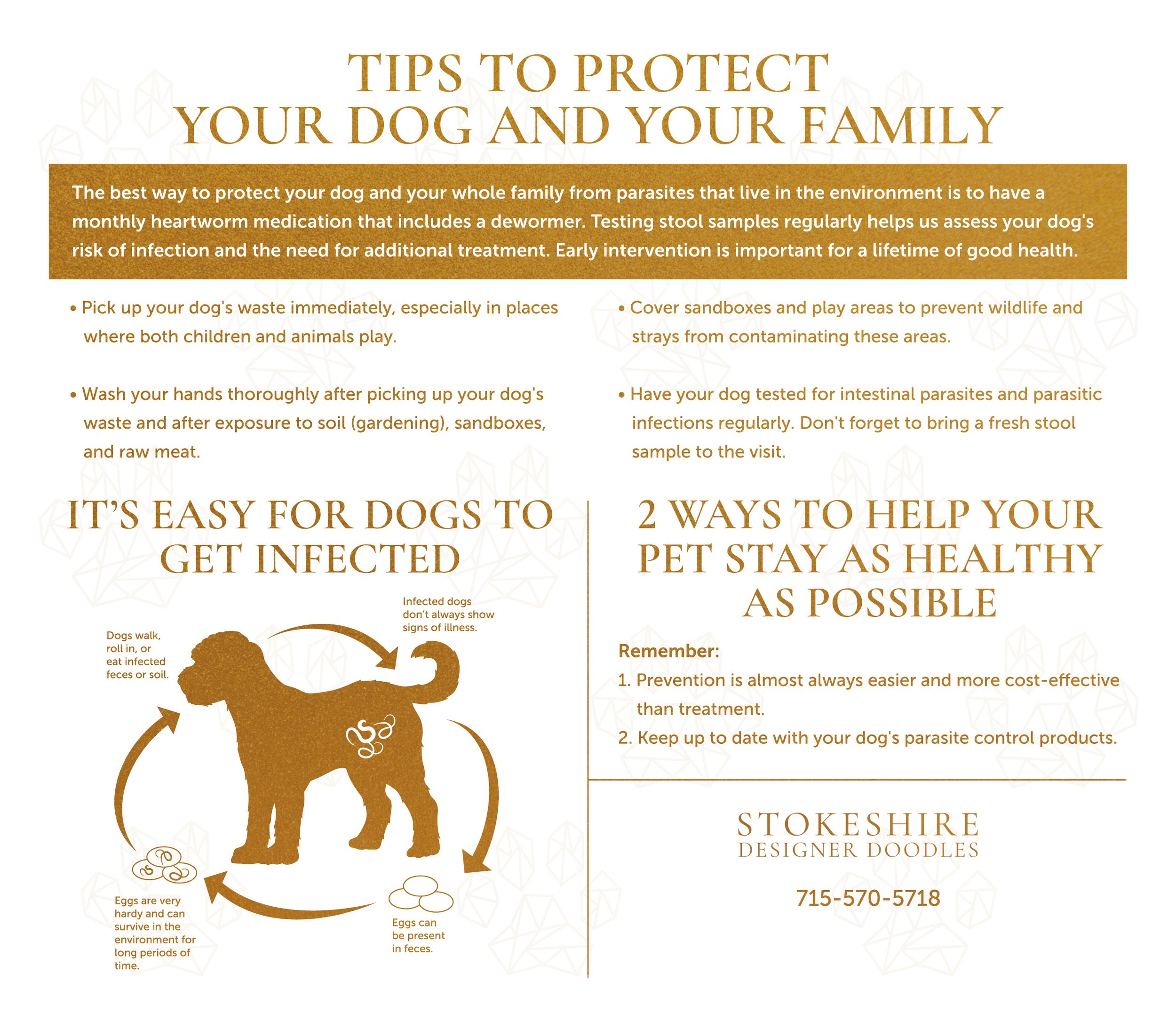Protecting Your Furry Friend: A Guide to Preventing Parasites in Puppies
As a pet owner, there's nothing more rewarding than seeing your furry friend grow up healthy and happy.
Unfortunately, one of the biggest threats to your puppy's health can come in the form of parasites. From fleas to ticks and everything in between, these tiny critters can wreak havoc on your pup's health if left unchecked. That's why it's crucial to take proactive measures to prevent parasites in puppies.
In this guide, we'll cover everything you need to know to keep your puppy safe from these pesky parasites. From identifying common parasites to tips on effective prevention strategies, we'll give you the tools you need to protect your furry friend and ensure that they grow up healthy and happy.
So let's get started and learn how to keep those parasites at bay!
Common Types of Parasites in Puppies
There are several types of parasites that can affect puppies. Some of the most common include fleas, ticks, and worms.
Fleas are small, wingless insects that feed on your puppy's blood. They can cause skin irritation, allergic reactions, and even anemia in severe cases.
Ticks are external parasites that attach to your puppy's skin and feed on their blood. They can transmit a range of diseases, including Lyme disease, Rocky Mountain spotted fever, and ehrlichiosis.
Worms are internal parasites that can infect your puppy's digestive tract or other organs. Common types of worms include roundworms, hookworms, and tapeworms.
To prevent these parasites from affecting your puppy, it's crucial to be aware of the signs of infestation.
Symptoms of Parasites in Puppies
The symptoms of parasites in puppies can vary depending on the type of parasite and the severity of the infestation. Some common signs of parasites include:
- Scratching, biting, or licking of the skin
- Hair loss or bald patches
- Redness or inflammation of the skin
- Diarrhea or vomiting
- Weight loss or poor appetite
- Lethargy or lack of energy
- Pale gums or tongue
- Coughing or wheezing
If you notice any of these symptoms in your puppy, it's important to take action immediately. Parasites can cause serious health problems if left untreated, so don't hesitate to seek help from a veterinarian.
Prevention Measures for Parasites in Puppies
Preventing parasites in puppies requires a multi-faceted approach. Here are some of the most effective prevention measures you can take:
1.Regular Check-ups with a Veterinarian
Regular check-ups with a veterinarian are essential for preventing parasites in puppies. A vet can help you identify any signs of infestation early on and recommend the best treatment options. They can also provide advice on parasite prevention and offer vaccinations to protect your puppy from common diseases.
2.Deworming and Prevention Medications
Deworming and prevention medications are other important tool for preventing parasites in puppies. These medications can kill parasites before they can cause health problems. Your veterinarian can recommend the best medications for your puppy based on their age, weight, and other factors.
3.Proper Hygiene and Cleaning Practices
Proper hygiene and cleaning practices can also help prevent parasites in puppies. This includes regular bathing and grooming, cleaning your puppy's bedding and toys, and keeping their living area clean and free of debris. Regularly vacuuming your home can also help prevent flea infestations.
4.Diet and Nutrition for Parasite Prevention
Diet and nutrition are also important for parasite prevention. A healthy diet can help boost your puppy's immune system, making them less susceptible to parasites. Feeding your puppy high-quality food and providing plenty of fresh water can also help prevent dehydration, a common problem in puppies with parasitic infections.
5.Socialization and Avoiding Contaminated Environments
Socializing your puppy is crucial for their development, but it's important to avoid contaminated environments that may expose them to parasites. An option is to choose supervised playdates with other well-vaccinated and healthy dogs to minimize the risk of exposure to parasites.
Treatments for Dog Parasites
There are several treatments available for dog parasites, considering the specific parasite involved. These treatments include topical spot-on options like medicated drops or ointments, oral medications available in tablet, chewable, or liquid forms, as well as collars and shampoos. It is essential to consult a veterinarian to obtain a proper diagnosis and determine the most appropriate treatment for your dog's specific parasite infestation. Their expertise will guide you in effectively addressing the issue and safeguarding your dog's health.
It's important to note that the treatments mentioned above should be administered under the guidance of a veterinarian. They can assess your dog's condition, recommend the most effective treatment, and provide you with proper dosage instructions.
Natural Remedies for Parasite Prevention
In addition to conventional treatment options, there are also several natural remedies that can help prevent parasites in puppies. Some of these include:
- Apple cider vinegar: Adding a small amount of apple cider vinegar to your puppy's water can help repel fleas and ticks.
- Garlic: Adding a small amount of fresh garlic to your puppy's food can help repel fleas and ticks. However, be sure to consult with your veterinarian before giving your puppy any garlic, as it can be toxic in large amounts.
- Diatomaceous earth: Sprinkling food-grade diatomaceous earth in your puppy's living area can help kill fleas and other parasites.
- Herbal flea collars: You can create a natural flea collar using essential oils. Mix a few drops of essential oils like lavender, citronella, or eucalyptus with a carrier oil, and then apply it to a fabric collar. Remember to reapply the oils regularly.
Conclusion
Preventing parasites in puppies requires a proactive approach. By being aware of the signs of infestation, taking preventive measures, and seeking help from a veterinarian when necessary, you can protect your furry friend from the harmful effects of parasites. With the right knowledge and tools, you can ensure that your puppy grows up healthy and happy.


